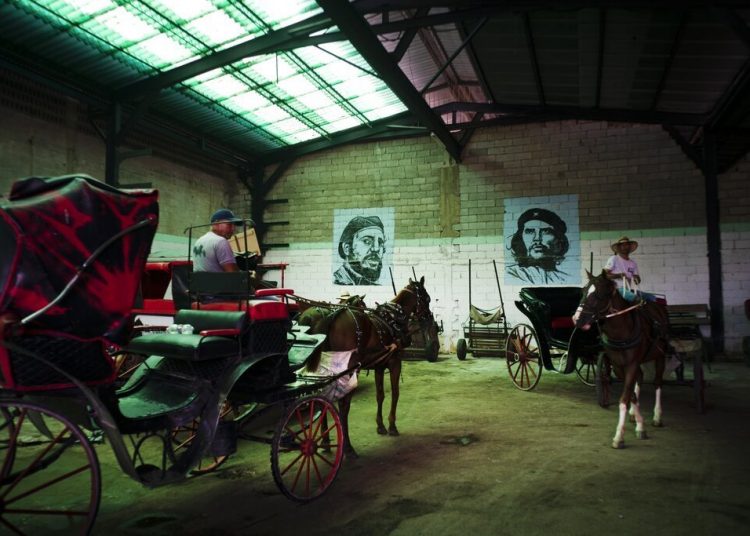It is low season for tourism in the historic center of the Cuban capital.
A great many Americans who used to arrive on cruises stopped meeting smiling and bubbling to tour the colonial streets of Havana after the Donald Trump administration banned them from using this means. And as travelers of other nationalities prefer the famous beaches to the warm Havana, the carriages that once strolled foreigners in the area are now struggling to survive.
These horse-drawn carriages that visitors usually hire are a set element of the landscape of this city with its varied architecture that is about to reach 500 years of existence.
However, the decline in tourism is a challenge for the members of the cooperative made up by the owners of these carriages: for them it means less money to support their families and to conserve the carriages and their animals. A tour can cost between 25 and 30 dollars an hour, providing drivers with a decent salary.
An average of 20 carriages can be found along the streets of Old Havana on a high-season day. Until a few weeks ago they were full of Americans who arrived on cruise ships a few meters from their point of concentration. Now, many are waiting empty.

Cuban Minister of Tourism Manuel Marrero announced this Thursday that Cuba will not be able to meet the goal of 5 million foreign visitors in 2019, due to the recent measures of the Trump administration, including the ban on U.S. cruise trips to the island.
“Right now we don’t have any ships operating in Cuba,” he said.
The tradition of horse-drawn carriages in Cuba began in the 15th century, when they were used by Spanish colonizers to transport cargo. After cars were introduced on the island in the late 19th century, they became a secondary transport, although many communities in the country depend on them to move the population and merchandise.
Since the beginning of 2014, the horse-drawn carriage business in Old Havana has become a cooperative called “El Carruaje” run by the workers themselves, including 124 drivers.
It was established as part of an effort to remove hundreds of thousands of Cubans from the state payrolls and provide individuals with some activities. Now these cooperative members are struggling to stay sustainable with fewer Americans walking the streets and tougher sanctions by Trump, which reduce the number of visitors and their income.
AP / OnCuba










